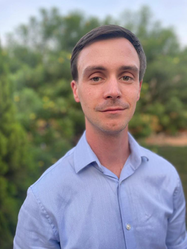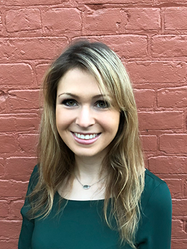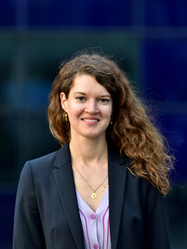Meet the Imperial alumni working across the globe to make reliable and sustainable energy available to all.
Interviews: Sarah Woodward
Our Imperial alumni

Dr Philip Sandwell
(MSci Physics 2013, PhD 2017), Humanitarian Energy Research Associate, United Nations Institute for Training and Research.
Your Master’s was in Theoretical Physics, studying complexity and dynamics in ant colonies. How did you move from that to your current work on sustainable energy access?
I had to twist the arm of my supervisor to let me study ant colonies in the first place – and there were questions from the examiners like: “How is this physics?” But physics gives us the methods, and you can apply physics to an ant colony just as much as a neutron star. My PhD was on the greenhouse gas mitigation potential of photovoltaic technologies, focusing on applications in developing countries. Luckily another PhD student at the Grantham Institute, Oorja’s Clementine Chambon, was starting up her electrification work in rural India. I ended up going out to Bahraich District in Uttar Pradesh to collect data on energy consumption to inform my computer model. It was an amazing experience to hear the thoughts of local people and then translate them into computer code.
Had you expected to move from theoretical physics into more practical applications?
If you had asked me on day one as a physics undergraduate where my research would take me, I would have said CERN was a thousand times more likely than a village in rural India. But my pathway was made possible by my time at Imperial, where I received game-changing support from my supervisor, Professor Jenny Nelson. She always supported my harebrained ideas, including going out to India to collect data, and encouraged me to think about the impact of my research.
You remain closely linked with Imperial for your research, but you are also working in the field for the UN. Have you achieved a balance?
I am very lucky that I lead a double life these days: part researcher, part practitioner. My work has recently taken me to Rwanda, Kenya and Uganda. I meet fascinating people and I get to see the value that sustainable energy research can have. I find it very fulfilling to see what our research can mean to people.
Alongside his work at the UN, Philip Sandwell is continuing his research at Imperial as a Visiting Researcher, focusing on sustainable energy access in developing countries and displacement settings.

Dr Miriam Aczel
(MSc Environmental Technology 2015, President’s Scholar PhD 2020), McQuown Postdoctoral Fellow at the California Institute for Energy and Environment, UC Berkeley.
When did you become interested in fracking?
I had never even heard of fracking until I saw the movie, Gasland, in 2014, which made me want to understand the science around it. I took a Master’s in Environmental Technology at Imperial, focusing on the environmental health around fracking and its effect on communities. I was one of only a few Americans on the course and the range of life experiences and backgrounds of the other students in my cohort was incredible. Karen Makuch was the lecturer who gave me my first exposure to environmental law and very early on in the course I realised that this was what I wanted to keep doing.
How was your research outside of London?
My work focusing on community protection involved ethnographic research, for which I had to gain the trust of the local community in Blackpool. I found unique local aspects in Lancashire that linked to the global anti-fracking movement. I also spent some time at Beijing’s Tsinghua University, and the following year I received funding from the São Paulo Research Foundation, Brazil to attend the São Paolo Advanced School on Water-Energy-Food Nexus at the University of Campinas.
You are now working on the Oakland EcoBlock project at Berkeley. Is that a natural progression from your research work at Imperial?
I am still affiliated to research at Imperial, which means a lot to me. The EcoBlock project is a radical retrofit of existing residential homes to improve resilience, sustainability and quality of life. Our aim is to create a model for a block-scale community solar microgrid with in-home energy and waterefficient retrofits, and we’re currently trialling it in Oakland, CA. The eventual aim is to share lessons learned so that the model can be rolled out, not just across America but to disadvantaged communities everywhere that lack reliable energy access and live in ageing, inefficient housing stock. That fits neatly with my interest in how to leverage the power of the neighbourhood effect.
Miriam Aczel is Director of Scientific Communications at Leaders in Energy and Co-Founder and Co-Director of the non-profit Amir D. Aczel Foundation for Research and Education in Science and Mathematics.

Dr Clementine Chambon
(PhD Chemical Engineering 2017) CTO and co-founder of Oorja Development Solutions Limited.
When did you first become interested in climate tech and energy access?
Soon after starting my PhD, I accepted an invitation through the Grantham Institute to participate in Climate-KIC, a five-week European Climate Innovation summer school. The aim was to create business ideas related to climate change mitigation and adaptation. Social entrepreneur Amit Saraogi and I joined the same group based on mutual interests. He explained energy access requirements in the Indian context. We soon saw that there was an opportunity to combine my knowledge of biomass energy production with his local experience. We became business partners and Oorja, meaning energy in Hindi, was the result.
You started the company while you were still studying for your PhD. How did that work?
I did successfully manage both – but it was very stressful! It helped that my supervisors were incredibly supportive. Climate-KIC gave me a great foundation, so I already knew what a financial model was and could build a business plan. Imperial is special because all the departments are so accessible; through the Grantham Institute I was able to link up with Philip Sandwell for help on my fieldwork. And it’s a great place to be an entrepreneur – there are always events happening and early-stage funding is relatively easy to access if you have a good idea.
How has Oorja evolved?
We started out intending to power households via solar mini-grids, but soon discovered it was not commercially viable. In our pilot project, the people whose houses we were powering were farmers. They could farm more cheaply and sustainably if we helped them replace their diesel irrigation pumps with solar power. Today, Oorja is providing pay-per-use agricultural services powered by solar energy, and our model has received widespread recognition. We operate in Eastern Uttar Pradesh and Bihar. We are a team of 50 people working with 15,000 farmers and are closing our pre-series A funding round to expand into other parts of India.
Clementine Chambon received Imperial’s Emerging Alumni Leader Award 2023. Her PhD was partly funded by the President’s PhD Scholarship – supported by alumni and friends.